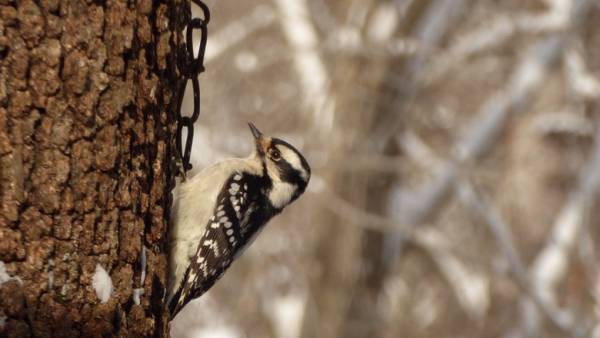Woodpeckers teach people how to treat traumatic brain injury
Scientists have found that in the brain of woodpeckers, as in humans with Alzheimer’s disease or trauma that accumulate harmful Tau proteins. Now scientists want to understand why Tau proteins do not interfere with the woodpeckers live.

One-tenth of the force with which the woodpecker hits the tree trunk, enough people got a concussion — a woodpecker kept a series of 10-14 such attacks, and seemed not to feel the unpleasant consequences. the arrangement of the skull of these birds have served as a source of inspiration for the creators of motorcycle helmets and special means of protection for the builders. But recently scientists have found that constant blows to the head still did not pass unnoticed for woodpeckers. Over time, their brain accumulates protein, excess of which occurs in people as a result of traumatic brain injury. Scientists believe that this protein partially rescues woodpeckers from destructive effects of shock loading on the head.
The authors of the work published in the journal PLOS One, collected ten stored in the preservative skulls of several species of woodpeckers from the Museum’s collections; for comparison, took birds of the same size, which do not crush the wood with blows of the beak. Similar job ornithologists were doing in the mid-seventies, but this time scientists have used modern analytical approaches, which forty years ago did not exist.
In eight of the 10 skulls found high concentrations of proteins. In the brain of other birds of this protein was not. Protein deposits woodpeckers were always in the front of the brain, where they accumulate in people suffering from traumatic encephalopathy. The researchers then took samples of protein from these skoleni. The researchers were looking for Tau proteins — the ones that are precipitating in the neurons of the human brain that cause degenerative processes, including traumatic encephalopathy and Alzheimer’s disease. Tau proteins found in the brain of three out of ten birds, but it was enough to shake the scientists.